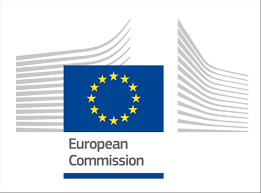Objective:
The objective of this call for proposals is to facilitate the implementation of Maritime Spatial Planning in the EU, including through the effective application of Directive 2014/89 establishing a framework for MSP.
This call is intended to fund projects to develop innovative responses to tackle specific challenges that EU Members States might encounter when putting into effect, monitoring and/or revising their maritime spatial plans.
Many of these challenges are common to coastal Member States. There is thus a shared interest in developing innovative responses that can apply within a sea basin and/or across sea basins. This means that projects should bring together participants from different Member States, located in a sea basin, or from different sea basins.
To meet these challenges Member States will have to:
· Reflect and align their maritime spatial plans to the ambition of the European Green Deal and the related initiatives in areas such as climate change mitigation and/or adaptation, biodiversity, food, mobility, energy transition, alongside established activities and interests.
· Cater for cumulative impacts of ocean stressors: promote the use of an ecosystem-based approach, including Environmental Impact Assessments (EIAs), and strengthen the process of the Strategic Environmental Assessments (SEAs), which are an integral part of MSP.
· Reinforce the sea basin dimension of MSP: meeting the above mentioned challenges, and integrating the new EU initiatives, will require greater cooperation in planning activities in the different sea basins. A good example of this is the North Sea, where coastal Member States have set up structures to strengthen the coordination when deploying offshore wind energy (North Seas Energy Cooperation, with a dedicated support group on MSP - DG MARE is co-chairing this group).
· Making MSP digital and pan-European: the European MSP Platform will work with EMODNET to harmonise data and to disseminate the contents of these plans through a common or shared digital platform. EMODNET, in combination with the MSP Assistance Mechanism, constitute a platform unique in the world for this endeavour. The Commission's support for Member States will act as a catalyst. It will also encourage Member States to ensure broad stakeholder involvement and efficient monitoring and enforcement schemes.
Scope:
Themes and priorities
Proposals are expected to develop innovative responses to tackle the above mentioned specific challenges that EU Members States might encounter in the implementation and/or revision of their maritime spatial plans.
Hereunder is a list of examples of "Priorities” related to the aforementioned challenges:
· MSP as an enabler of the European Green Deal: development of a clean, circular blue economy, preserving and protecting biodiversity in the marine environment (in particular with spatial measures), facilitating the supply of clean, affordable and secure, energy, enabling the provision of healthy and environmentally-friendly food from the sea. Climate proofing of MSP, including incorporating adaptation and mitigation actions and/or strategies into MSP, making MSP flexible and adaptive to respond to climate change.
· Facilitate/enable the development of an economic sector (e.g. tourism and maritime/underwater cultural heritage, offshore wind energy, aquaculture) in the maritime domain: ex-ante assessments (Strategic Environmental Assessment, Environmental Impact Assessment); multi-use in project design and licensing/permits; development of a regulatory framework for multi-use, including Land Sea Interactions (LSI); allocation of sufficient sea space, resolution of conflicts with other uses, enabling synergies with other sectors / activities.
· Applying the Ecosystems Based Approach (EBA) in MSP: designing maritime spatial plans to integrate objectives and measures of other EU instruments (e.g. the Marine Strategy Framework Directive) with the aim to reduce collective pressures and ensuring that marine ecosystems are in a healthy, productive and resilient condition.
· Developing strategies and approaches to review/revise maritime spatial plans to make them future proof (see Priority 1), more integrated and more coherent, especially in a sea basin context.
· Addressing gaps and challenges in the collection, integration, use, re-use, access, including to data produced by non-public actors, of data in the MSP context: using best available data and instruments to prepare, monitor and revise maritime spatial plans. Developing data tools, models and infrastructures, allowing for interoperability and enabling Member States to share MSP data and information, especially in a cross-border and sea basin context.
· Promoting ocean governance through MSP: incorporating oceans' governance tools into the MSP process and in maritime spatial plans. For example by enabling stakeholder participation in governance schemes and instruments (e.g. management of marine resources, protection of the environment or of the underwater cultural heritage), by providing capacity building and facilitating joint and/or coherent planning in a sea basin context, or by promoting cooperation with third countries in issues of common interest in a sea basin or a shared ocean space.
Applicants should identify one among the above "Priorities" and build their proposal around it.
Priority will be given to proposals that build on the outcome of prior MSP related projects, relevant to the objectives of the call. In this context, proposals should describe how they build on, complement and differ from finalised or ongoing research and innovation projects, including from EU programmes, where relevant. In case a proposal includes activities a particular sea basin in which a dedicated sea basin strategy or similar initiative exists, priority will be given to proposals that explain how they contribute to the objectives of the relevant sea basin strategy or initiative
Activities that can be funded
Applicants should explain in their proposal how they will implement the activities below described, resulting in concrete and measurable results within the project's duration.
Projects must undertake one or more of the following main activities as part of the project implementation:
· Specific activities aimed at implementing provisions set out in articles 6, 7, 8 and 9 of the MSP Directive, including the review and/or revisions of maritime spatial plans;
· Specific activities aimed at implementing provisions set out in article 10 of the MSP Directive (Data use and sharing);
· Specific activities aimed at implementing provisions set out in article 11 of the MSP Directive (Cooperation among Member States);
· Specific activities aimed at implementing provisions set out in article 12 of the MSP Directive (Cooperation with third countries).
In addition, applicants should include in their project the following complementary activities/tasks to support the above core activities:
· Establishment of a Steering Committee (SC) to ensure the overall strategic steering of the project. The SC should comprise relevant representatives of the Member States where the action takes place (such as MSP competent authorities), as well as the beneficiaries involved. The Commission and CINEA may participate in an observer capacity only.
· Establishment of an Advisory Committee (AC) to provide expert advice on the project's activities. The AC should be composed of a maximum of five recognised experts in MSP or in relevant fields of activity. The Commission and CINEA may participate in an observer capacity only.
· Working procedures defining how the project and the SC will operate (assigning clear roles and responsibilities, describing the decision-making process, frequency of meetings etc.);
· An opening and closing conference.
Applicants are strongly encouraged to assign dedicated staff to the development and implementation of the proposed communication and dissemination activities. This should be appropriately reflected in the proposed budget.
The list of complementary activities is non-exhaustive. Applicants may propose additional activities, as long as the proposed complementary activity is justified and establishes a coherent link with the project objectives and the objectives of this call.
Networking with other EU projects
During the lifetime of the projects funded under this call, a number of events (no more than once per year) may be organised at EU level for the grant beneficiaries to facilitate the exchange of experience and good practices across sea basins, to foster mutual learning and to enhance the European dimension of Maritime Spatial Planning. Project beneficiaries are expected to participate in these events, which will be held in Brussels or other relevant locations.
Expected Impact:
Applicants have to list the main results expected from the project. The expected results to be achieved by the end of the project must be concrete, realistic and time bound and quantifiable as far as possible.
In particular, proposals are expected to:
· Ensure that maritime plans are coherent and coordinated across the marine region concerned;
· Create a repository of best practices and lessons learnt from the project and a list of achievements of the projects;
· Produce "policy briefs" that summarise the main results of the project and their relevance for the implementation of the MSP Directive, and include elements of "policy feedback", in particular suggestions for changes / improvements in the current EU policy instruments.
Eligible Applicants:
In order to be eligible, the applicants (beneficiaries and affiliated entities) must:
· be legal entities (public or private bodies)
· be established in one of the eligible countries, i.e.:
o EU Member States (including overseas countries and territories (OCTs))
o non-EU countries in the Atlantic, Baltic Sea, Black Sea, North Sea and the Mediterranean, or having waters adjacent to EU Outermost Regions, under cross border Maritime Spatial Planning cooperation and only when its participation is necessary for the objectives of a given action and link with activities undertaken under Regional Sea Conventions - Individual proposals by the non-EU countries are not eligible
· be public authorities or bodies (see section on Consortium composition).
Project Length:
Projects should normally range between 24 and 36 months (extensions are possible, if duly justified and through an amendment).
Further Financing Information:
The available call budget is EUR 3 750 000.
This budget might be increased by maximum 20%. They expect to fund 2-3 projects.
They reserve the right not to award all available funds or to redistribute them between the call priorities, depending on the proposals received and the results of the evaluation.
For more Information:
For more information, please see here.


